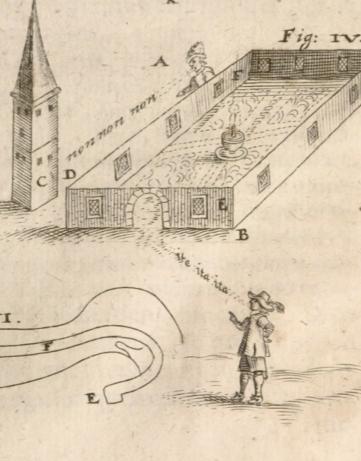This project focuses on the changing role of experience, techniques of observation, and the use of material instruments in seventeenth-century acoustics. It concentrates on the French scholar Marin Mersenne (1588–1648), who has been identified as a one of the key authors in the emerging field of acoustics. The project investigates the production of new research tools, practices, and materials in musical and acoustical discourse in the early seventeenth century by looking more closely at Mersenne’s personal network in early modern Europe.

Gaspar Schott's Magia universalis naturae et artis discussed many wonders and tricks of nature, among them the echo. Source: Gaspar Schott, Magia universalis naturae et artis; Bd. 2: Acustica. ECHO, MPIWG.
In my PhD project, I argue that a particular shift in musical and acoustical techniques of observations took place in the early modern period. Mersenne and his collaborators represent a growing scientific attention towards the materiality of musical instruments and objects, such as the string, organ pipe, voice, and echo, which made sound visible, tangible, and subject to investigation. My project aims to show that Mersenne developed new practices of collecting and observing musical objects and knowledge. To see how knowledge of sound moved between different fields and across cultural boundaries, I consider practices of listening in aesthetic and scientific realms and the validation and transfer of such experiences; techniques of description and visualization in the field of music; the development of new musical instruments; and Mersenne’s contacts with musicians and artisans.

